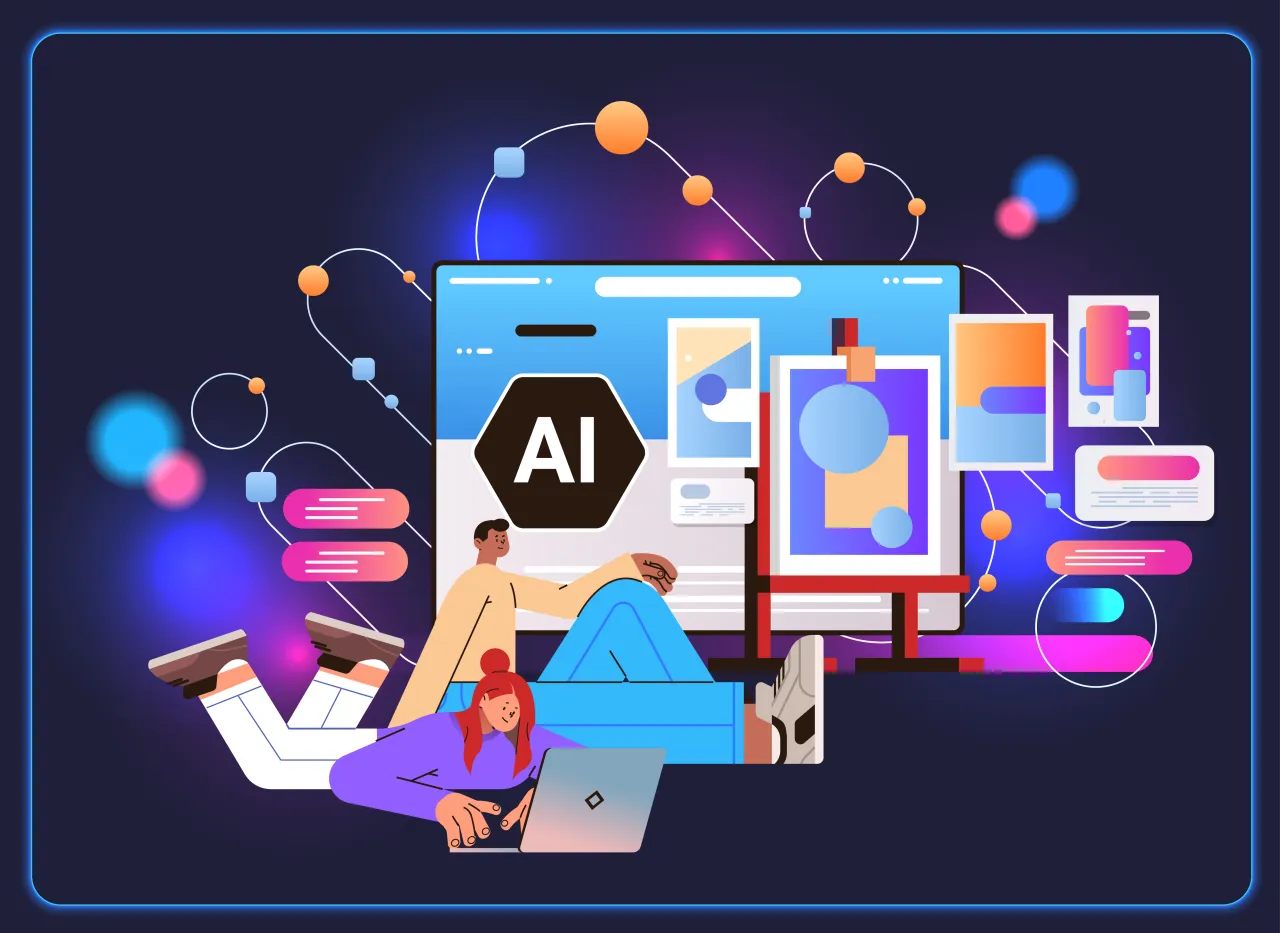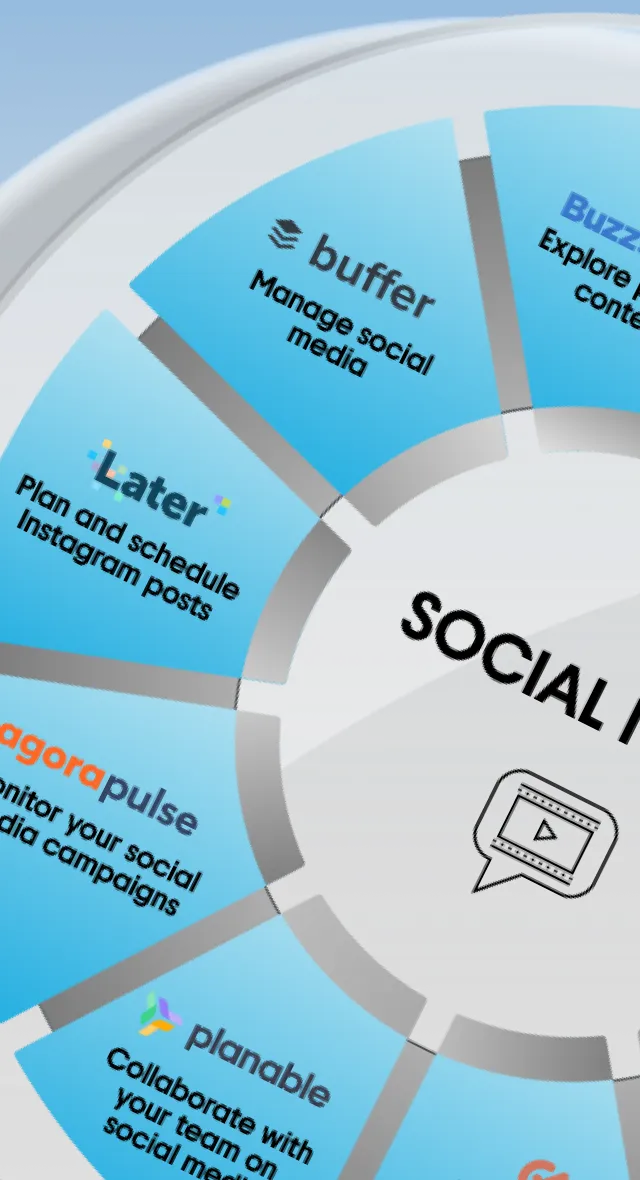20+ AI Startup Ideas and Tips to Start a Business In 2025
Imagine a world where machines get what we need, lend a hand, and bring solutions before we even ask. Sounds like science fiction? It’s not. This is the reality of AI—packed with innovation, hyper-efficiency, and untapped potential.
With AI expected to add trillions to the global economy in the coming years, there’s no better moment to step into the AI startup scene.
New research from IDC entitled, The Global Impact of Artificial Intelligence on the Economy and Jobs, predicts that business spending to adopt artificial intelligence, to use AI in existing business operations, and to deliver better products/services to business and consumer customers will have a cumulative global economic impact of $19.9 trillion through 2030 and drive 3.5% of global GDP in 2030.
—The International Data Corporation (IDC)
So, if you’ve been eyeing a business that rides this revolutionary wave, here are standout AI startup ideas bound for success in 2025 and beyond.
Reasons to start your AI business
Artificial Intelligence is flipping the script on how businesses run and connect with customers. It’s about making things faster and smarter, solving problems before they even surface, and uncovering insights hidden in mountains of data. So, what makes AI such a jackpot for startups today?
Unmatched scalability across industries
AI tools adapt and grow effortlessly, slotting into processes across various industries like healthcare, retail, entertainment, finance, marketing and more, making them a one-size-fits-all powerhouse.
Skyrocketing demand and growth potential
This is a perfect time for new players to hop on the AI train to keep up with market demands. AI’s adoption in businesses is expected to grow significantly, with some reports suggesting that global AI revenues could reach over $1.8 trillion by 2030.
Learning and preparing for the future
AI isn’t a fleeting trend, so start preparing now. AI expertise is becoming essential for professionals and businesses looking to survive the next decade. Entrepreneurs launching AI-driven companies will be at the forefront of this shift.
Innovation for solving real-world problems
AI helps address real-world challenges, from personalizing education to forecasting health risks and sniffing out fraud. And that means a loyal following of customers and investors, ready to buy in.
Current state of the AI market
AI is becoming the backbone of the modern economy. Industries are racing to leverage its capabilities, backed by billions in funding from corporations, venture capitalists, and governments alike. The IDC estimates AI spending to climb by nearly 29% annually, pushing the global AI market past a $632 billion valuation by 2028.
The tech behind AI—think natural language processing (NLP), machine learning, predictive accuracy, and autonomous decision-making—are evolving at breakneck speed, making AI indispensable for everything from diagnostics to data processing.
With tools like machine learning-as-a-service, even small- and medium-sized companies can now tap into AI’s potential without huge infrastructure investments.
👉 Dos and Don’ts for Creatives Working with Text-to-Image AI
AI business ideas by industry
To carve out your space in AI, find the sweet spot where your passion meets market demand. Here’s a lineup of AI startup ideas broken down by some of the most promising sectors.
Technology and AI
In tech, AI is a playground for innovation, offering tools and solutions that push boundaries across industries. If you’re looking for ideas for a high-impact startup based on AI, look no further!
AI development, data processing, and generative tools
Design AI-powered platforms that sift through massive datasets, clean up the noise, and structure data for analysis, helping businesses turn raw data into actionable insights.
You could also consider creating plug-and-play tools that help developers integrate AI into projects without needing deep technical expertise. Think APIs for NLP, image recognition, and more—making AI accessible to any team looking to enhance their applications.
We at Depositphotos decided to contribute to the pool of generative AI tools with our ethical AI Image Generator and text to art AI that allow you to create licensed, copyright-free images perfectly suitable for commercial use. Check it out!
AI-driven cybersecurity and AR
Build robust security platforms that use AI to monitor network traffic, spot vulnerabilities, and predict threats before they strike. With cyber risks rising, a proactive, AI-powered solution could be a game-changer.
Develop cutting-edge applications for recognizing voices, faces, or objects. These tools are vital in sectors ranging from customer service to security, enhancing both convenience and safety.
Combine AI with AR to power immersive experiences like virtual tours for real estate, interactive ads for retail, or new levels of engagement in gaming.
AI marketing and sales
AI is rewriting the rulebook on how businesses connect with customers, bringing sharper insights and ultra-personalized experiences to the table.
Smart customer support and real-time personalization
Consider designing chatbots that go beyond scripted responses, using NLP to tackle complex customer questions, handle transactions, and deliver quick solutions—keeping users happy and engaged around the clock.
Create tools that recommend products or content based on individual browsing and buying patterns, empowering brands to deliver a unique experience for every customer.
Customer behavior analytics and sales forecasting
You could build platforms that analyze customer behavior across multiple touchpoints, helping businesses craft targeted strategies that resonate with their audience’s preferences and buying habits.
Offer an AI solution that uses historical data to anticipate sales trends, enabling businesses to optimize inventory, prioritize hot products, and ultimately drive revenue growth.
👉 AI Marketing: How to Enhance User Experience Through Automation
AI-powered eCommerce and retail
As online shopping booms, AI is stepping in to make the experience smoother, smarter, and more personal. Here’s a roundup of AI ideas ready to elevate the e-commerce and retail space:
Intelligent product recommendations and try-on solutions
Develop AI-driven recommendation engines that sift through user data to suggest products customers are likely to love, boosting conversion rates with a personalized touch.
Think of designing a virtual try-on tech that lets online shoppers preview how clothes, accessories, or makeup will look on them, bringing an interactive, in-store experience to their screens.
Offer virtual shopping assistants that guide customers to products tailored to their preferences, style, and budget, creating a concierge-like experience every time they browse.
Automated supply management and dynamic pricing
Create AI tools that monitor stock levels in real time and predict demand patterns to help retailers stay stocked on popular items and reduce overstock of less popular ones.
Or you could build platforms that track market shifts, competitor pricing, and consumer demand, adjusting product prices in real time to maximize profitability without manual intervention.
AI healthcare and medicine
Healthcare is at a tipping point, and AI could be the answer to some of its biggest challenges. You could be the one who transforms patient care and improves outcomes with the following AI-driven startup ideas:
AI diagnostics and prediction tools
Develop systems that analyze medical images like X-rays and MRIs to catch issues like tumors or fractures with pinpoint accuracy, supporting doctors in faster and more precise diagnoses.
You can also design AI tools that crunch massive datasets to forecast potential health risks, from disease outbreaks to patient deterioration, enabling specialists to intervene before issues escalate.
Personalized health monitoring apps
Create AI-powered apps that dig into individual health data to offer personalized advice on wellness, nutrition, and fitness, helping users achieve health goals tailored just for them. We know there are many already flooding app stores, but it’s never too late to create something even better, probably narrowly focused if you don’t have the resources for a full-scale health app.
If you’re willing to build something comforting, think smart monitoring systems. For example, you could make an app that monitors patients’ vitals in real time and alerts healthcare providers at the first sign of trouble. This could ensure proactive care and peace of mind for patients and families.
👉 What Is AI Analytics and How Does It Fuel Smarter Business Decisions? (With Examples)
How to make money with an AI startup
Once you’ve built an AI solution that’s primed for the market, the next step is deciding how to monetize it. Subscription models are a natural fit, letting you charge users monthly or annually for access to premium features or unrestricted usage.
Many AI startups also benefit from the freemium model, offering basic features at no cost to attract a broad user base while charging for advanced functionalities.
If your AI serves other businesses, B2B partnerships can offer tailored solutions for companies with specific needs, providing a steady stream of revenue and fostering long-term client relationships. For startups with robust AI technology, licensing is another profitable route, allowing other companies to integrate your innovation into their own products.
And if your AI system generates valuable insights, consider offering data-as-a-service—selling analytics and data-driven findings to businesses that could benefit from these insights. With the right model, your AI can bring value that goes beyond its core functionality.
AI development costs
Creating an AI-driven startup doesn’t come cheap, but we won’t put a price tag on it because every AI solution is different. Even similar solutions within an industry can be priced differently based on stakeholder decisions about talent, infrastructure, and more made in the process.
One of the biggest expenses lies in talent acquisition. Skilled AI engineers, data scientists, and developers are highly sought after, meaning that hiring costs alone can account for a significant chunk of your budget.
Then there’s data acquisition—training an AI requires vast amounts of high-quality data, which often means paying for datasets or tools to clean and process raw information. Infrastructure is another essential investment: hosting AI models calls for powerful servers and substantial cloud storage, all of which add up quickly.
Research and development are also major and recurring expenses, but they keep your startup ahead of the curve. Since AI evolves rapidly, staying competitive requires continuous model optimization, upgrades, and experimentation.
👉 Amazing Images Generated with Depositphotos AI: Collection & Tips to Craft Your Own
AI development risks and difficulties
Building an AI startup isn’t all smooth algorithms and quick scalability—it’s a path of tricky challenges and high stakes. Data security sits at the top of the list. AI thrives on data—lots of it—but with that comes the responsibility to protect every byte. One breach can shatter trust and jeopardize your entire operation, so cybersecurity needs to be your foundation from day one.
Then there’s the ethical minefield. AI isn’t immune to bias, and a skewed algorithm can lead to unfair or even harmful outcomes. Privacy issues, too, can come back to haunt you if data isn’t managed transparently. Tackling these head-on, with rigorous oversight and continuous testing, is essential to stay credible.
Regulations add another layer of complexity, especially if you’re venturing into industries like healthcare or finance, where compliance requirements are very strict. Cutting-edge AI needs to play by the rules, meaning legal expertise and careful planning are as vital as your tech stack.
And let’s talk upfront investment. High-quality infrastructure, skilled talent, and enough power to train and run your models don’t come cheap. Every decision requires balancing ambition with sustainability, and every dollar spent needs to drive real value. AI is an exciting space to innovate, but the journey demands resilience, responsibility, and a willingness to tackle the tough stuff head-on.
In a nutshell
AI is packed with potential for those ready to shake things up. AI-driven ideas are the rocket fuel your startup needs to be on top in 2025. Whether you envision personalized health tech, next-gen marketing tools, or seamless eCommerce solutions, there’s a niche for everyone. Now’s the time to jump in and create something groundbreaking—because the future of AI is already here and it could have your name on it 😉
Read more about tech and AI:
How AI Image Generation is Changing Content Production for Businesses: 7 Striking Cases
5 Essential Tips for Crafting Effective AI Image Generation Prompts
Parallax Scrolling Explained with 8 Dazzling Examples
Design for Immersive Environment: Key Principles of Virtual Realities













